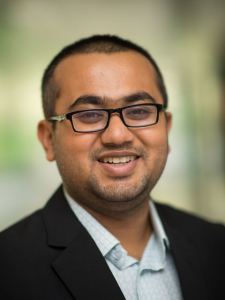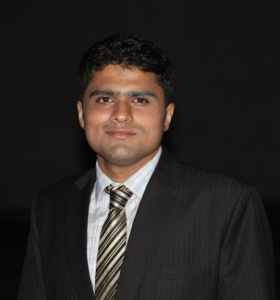Students' Forum Speakers
Fariha Tasmin Jaigirdar, Graduate Research Commitee Student Representative, PhD Researcher and Casual Academic, Monash University, Australia.
Bio: Fariha Tasmin Jaigirdar is a final year Ph.D. student in the Department of Software Systems and Cybersecurity at the Faculty of IT, Monash University, Australia. She is a member of IEEE, Australian Women in Security Network, N2Women Network, and Institute of Engineers (IEB) Bangladesh. Her research interests include different security applications of IoT, system engineering design and security analysis, trust and risk investigation, and security in health informatics. She has been in security-related research for more than nine years and has published several articles in renowned conferences and journals.
Abstract: Through her Ph.D. research, she is contributing to the cybersecurity research field with a focus on IoT and digital health. With the colossal growth and usage of smart devices in different sectors in Australia and worldwide, challenges in maintaining data security and trustworthiness are also increasing. However, any IoT application’s success depends on the exact decision-making and/or performance evaluation, which can hamper if the data is not trustworthy. Different examples of data breaches are already in the news, and therefore, estimating the data trustworthiness and designing and managing a trusted system is crucial. Her research project addresses the data trustworthiness by first considering the inter-layer dependency in an IoT architecture from a security point of view using a data provenance based approach.

Tanvir Ahmed Khan, Ph.D. candidate, University of Michigan
Bio: Tanvir Ahmed Khan is a 4th year Ph.D. candidate in the Electrical Engineering and Computer Science Department at the University of Michigan. His research interest lies in the intersection of compiler, operating systems, and computer architecture. Specifically, he is interested in designing novel profile-guided optimization mechanisms to improve instruction and data locality of modern data center applications. He was one of the finalists of the Facebook 2020 PhD Fellowship. More details can be found on his webpage
Abstract: While running data-center applications, modern processors suffer frequent stalls in the pipeline frontend and backend costing data center operators millions of dollars. Backend stalls mainly occur due to poor data locality while frontend stalls happen primarily because of bad instruction locality. In this talk, he will present an overview of his proposed techniques to overcome this overwhelming locality problem. First, he will introduce his state-of-the-art solution to detect and repair false sharing, a data locality problem that drastically slows down the execution of multi-threaded programs. Then, he will briefly describe his technique that identifies and fixes a broad class of data locality problems with extremely low-overhead. Finally, he will present his technique to improve accuracy and efficiency of instruction prefetching that outperforms previous mechanisms including approaches proposed by real-world data center operators like Google.

Md. Iftekharul Islam Sakib, Ph.D. Student, Department of Computer Science, University of Illinois at Urbana-Champaign & Assistant Professor, Department of Computer Science and Engineering, Bangladesh University of Engineering and Technology (On-leave)
Bio: Md. Iftekharul Islam Sakib is a graduate student pursuing his Ph.D. in Computer Science at the University of Illinois at Urbana Champaign (UIUC). His research interests lie in broader areas of systems and networking. He is interested in designing and building networked systems and formally analyzing their performance, especially when they operate under resource-constrained settings. His research focuses on distributed computing applied in the areas of the Internet of Things (IoT), cyber-physical systems (CPS), distributed systems, and embedded real-time systems. Before starting Ph.D., he served the Department of Computer Science and Engineering (CSE) at Bangladesh University of Engineering and Technology (BUET) as an Assistant Professor and is currently on study leave. He accomplished his M.Sc. & B.Sc. from the same department in 2014 & 2018 respectively.
Abstract: It is no wonder that the popularity of IoT devices is sky-rocketing day by day. There are currently more than 150 vendors starting from new startups to big multinational companies (Google, Amazon, Microsoft, Apple, etc.) in the market to compete for the business that is being expected to grow from the current 212 billion to 1.6 trillion US Dollar by 2024. The rise of IoT systems has led to an era where different types of sensors (simple and complex) are being hugely deployed in common spaces. This scenario paves a new emerging field named the Internet of Battlefield Things (IoBT) (also known as the Internet of Military Things (IoMT)). IoBT focuses on exploring the capabilities of intelligent battlefield systems and large-scale heterogeneous sensor networks that dynamically evolve in real-time in order to adapt to Army mission needs. In this brief session, Sakib will talk about key challenges in this emerging area.


